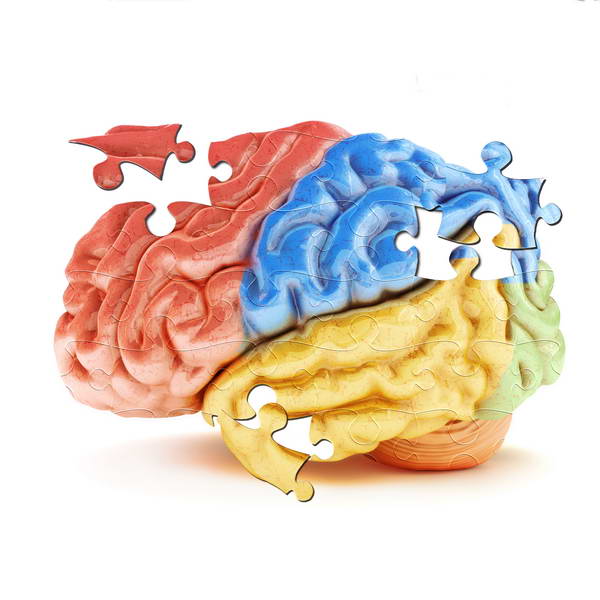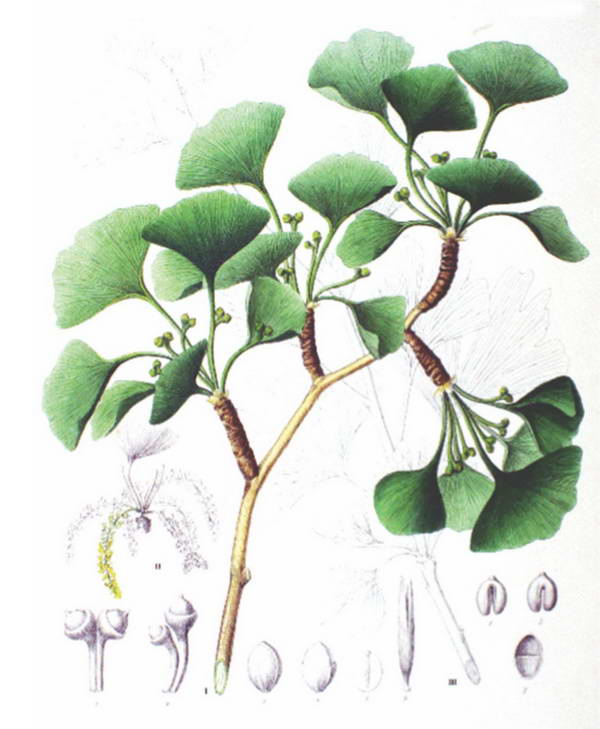Ginkgo Biloba: Benefits, Circulation & Brain Support, Side Effects
Benefits of Ginkgo Biloba: what this “living fossil” plant is, its uses and contraindications.
Ginkgo biloba is a tree found in various parts of the world that has been cultivated for thousands of years for many purposes. As the only surviving member of an ancient order of plants, it is often called a living fossil.
While its leaves and seeds are widely used in Traditional Thai Medicine, Traditional Chinese Medicine, and Ayurveda, modern research has focused primarily on ginkgo extracts made from the leaves.
Here we present research and 12 potential benefits of ginkgo biloba.
1. Ginkgo biloba contains powerful antioxidants
The benefits of ginkgo biloba are discussed from many angles in the scientific community and are supported by its antioxidant content. Ginkgo contains high levels of flavonoids and terpenoids, known for strong antioxidant effects. Antioxidants combat or neutralize the harmful impact of free radicals. Free radicals are highly reactive particles produced in the body during normal metabolic functions such as converting food to energy or detoxification.
However, they can also damage healthy tissues, contributing to accelerated aging and disease development. Studies on ginkgo’s antioxidant action are promising, but it remains unclear exactly how it works and how effective it is for specific conditions.
2. Helps combat inflammation

Inflammation is part of the body’s natural response to injury or foreign substances. During an inflammatory response, the immune system is activated to fight the invader or to help heal damaged tissue.
Some chronic conditions trigger inflammation even without illness or injury. Over time, this excessive inflammation can lead to irreversible damage to tissues and DNA.
Years of animal and test‑tube research indicate that ginkgo extract may reduce inflammatory markers in human and animal cells across several conditions. Specific conditions where ginkgo extract reduced inflammation include:
- Arthritis
- Inflammatory bowel disease (IBD)
- Cancer
- Heart disease
- Stroke
3. Improves circulation and supports blood vessels
The apparent ability of ginkgo to increase blood flow to various parts of the body may underlie many of its proposed benefits.
One study in people with heart disease who took ginkgo showed an immediate increase in blood flow to multiple areas. This was associated with a 12% rise in circulating nitric oxide, a compound responsible for blood vessel dilation.
Similarly, another study found the same effect in older adults treated with ginkgo extract. Additional research also points to protective effects on heart and brain health and potential stroke prevention. Several mechanisms may be involved, including anti‑inflammatory compounds present in the plant.

4. May reduce symptoms of mental disorders and dementia
Ginkgo has repeatedly been evaluated for its ability to reduce anxiety, stress, and other symptoms associated with Alzheimer’s disease and age‑related cognitive decline. Overall, findings are mixed.
Some studies show a noticeable slowing of cognitive decline in people with dementia taking ginkgo, while others fail to reproduce this result. One study indicated that, when used alongside conventional medicine, ginkgo extract may improve functional capacity in people with mild Alzheimer’s disease.
Another study reported a significant reduction in a spectrum of dementia‑related symptoms after 22–24 weeks of ginkgo. These positive outcomes may relate to ginkgo’s role in improving cerebral blood flow, particularly in vascular dementia.
To support brain and memory, we recommend Ginkgo Biloba No.40 — Brain Vessel Support

It has been suggested that ginkgo may enhance cognitive performance in healthy adults. Several small studies support the idea that ginkgo supplements can boost mental performance and perceived well‑being. Such results have led to claims about improved memory, concentration, and attention.
However, other research found that adding ginkgo did not produce measurable improvements in memory, executive function, or attention.
6. May reduce anxiety
In one study, 170 people with generalized anxiety received 240 mg, 480 mg of ginkgo, or placebo. The highest‑dose ginkgo group reported a 45% greater reduction in anxiety symptoms than the placebo group. Animal studies also show reduced anxiety‑like behavior, likely linked to ginkgo’s antioxidant content.

7. Depression
Animal studies suggest ginkgo supplementation may help with depressive symptoms. This effect appears related to ginkgo’s anti‑inflammatory properties, which may improve the body’s ability to manage elevated stress hormones.
That said, depression is complex with many potential root causes. More research is needed to clarify ginkgo’s role in human depression.
8. Vision and ocular microvasculature
Very few studies have examined how ginkgo affects vision and eye health. Early results are encouraging. In people with glaucoma, ginkgo supplements increased ocular blood flow, though this did not always translate to improved vision. Two other studies assessed ginkgo extract in age‑related macular degeneration; some participants reported improvements, but results were not statistically significant across all measures. Many positive findings seem associated with increased blood flow to the eye.

9. Headaches and migraines
Ginkgo’s anti‑inflammatory and antioxidant properties are well known. If headaches or migraines are triggered by excessive stress, ginkgo may help. If a headache is linked to reduced blood flow or vascular constriction, ginkgo’s ability to promote vasodilation may support relief.
Some migraines are caused by excessive vasodilation. In that scenario, ginkgo may have little effect. These are hypotheses, not definitive clinical guidance. If you wish to try ginkgo for migraines, it is unlikely to cause harm—but it may not always help.
10. Relief in asthma, respiratory conditions, and COPD (Chronic Obstructive Pulmonary Disease)
Some research indicates ginkgo may ease symptoms of asthma and other inflammatory respiratory conditions such as COPD. This is attributed to anti‑inflammatory compounds that can reduce airway inflammation and potentially increase lung capacity.
In one study of 75 people, adding ginkgo extract to glucocorticoid therapy for asthma significantly lowered inflammatory compounds in saliva compared with standard treatment alone.
Another study of 100 people evaluated a Chinese herbal blend that included ginkgo for COPD symptoms. Those using the herbal formula reported significant reductions in cough and bronchitis after three months compared with the control group.
At present, it is not possible to attribute the improvement solely to ginkgo or to synergistic effects of other herbs in the formula. While promising, more research is needed for this specific use.
11. Reducing PMS symptoms
Preliminary research suggests that ginkgo may help with both physical and psychological symptoms of premenstrual syndrome (PMS).
One study of 85 college students reported a 23% reduction in PMS symptoms with ginkgo. Interestingly, the placebo group also showed a small reduction (8.8%).
More studies are required to clarify ginkgo’s impact on PMS.
12. Erectile dysfunction
Some sources suggest ginkgo may support erectile dysfunction. By increasing nitric oxide levels, ginkgo can promote vasodilation and improve circulation. As a result, it may help with sexual function by improving blood flow to relevant tissues.
Several studies explored ginkgo for antidepressant‑induced sexual dysfunction; results found it no more effective than placebo. Additionally, interactions between ginkgo and SSRIs may reduce medication effectiveness.
One study assessed ginkgo for boosting sexual desire and satisfaction in women undergoing sex therapy. The combination of ginkgo plus therapy was effective over a longer period than placebo, but ginkgo alone was not. While the rationale for ginkgo in sexual dysfunction is plausible, current evidence does not confirm benefit.
Side effects and contraindications
For most adults, the risk associated with ginkgo is relatively low, but there are cases where it may be harmful. If you are allergic to plants containing alkylphenols or take certain medications, you should not take ginkgo.
Possible side effects include:
- Nausea
- Diarrhea
- Dizziness
- Headaches
- Stomach pain
- Rash/allergic reaction
Ginkgo may adversely interact with some medications. Certain interactions can increase bleeding risk. Potentially harmful interactions include:
- Blood thinners (warfarin, aspirin)
- SSRIs/MAOIs/antidepressants (Prozac, Zoloft)
- NSAIDs (ibuprofen, naproxen)
If you have any questions, please contact us:
